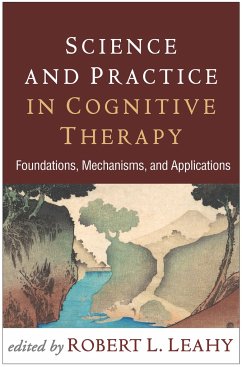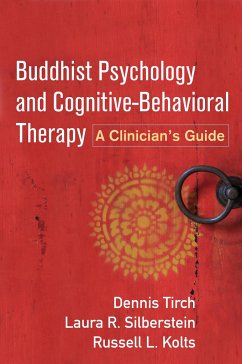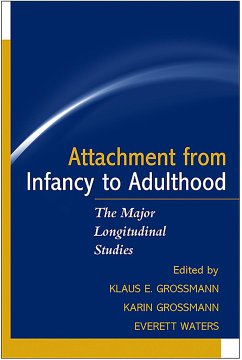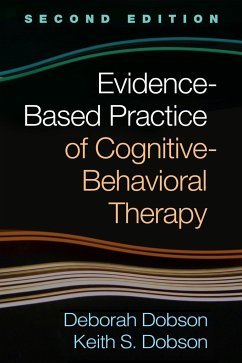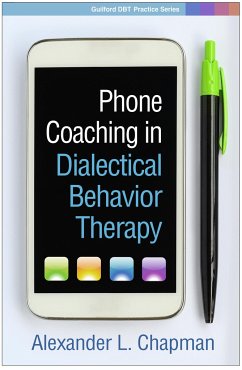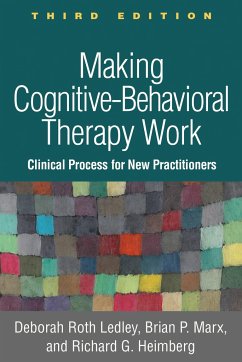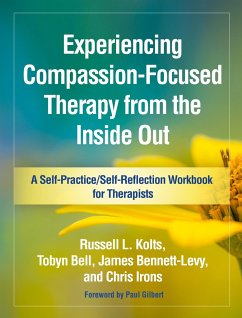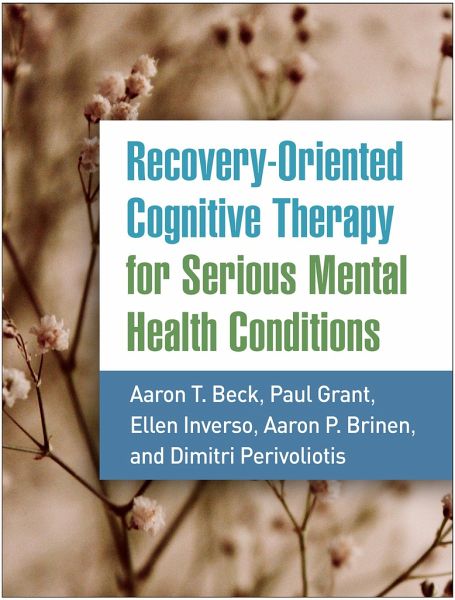
Recovery-Oriented Cognitive Therapy for Serious Mental Health Conditions
Versandkostenfrei!
Versandfertig in über 4 Wochen

PAYBACK Punkte
34 °P sammeln!




From pioneering treatment developers, this book describes recovery-oriented cognitive therapy (CT-R). This evidence-based approach empowers people given a serious mental health diagnosis such as schizophrenia to build a better life in their chosen community.
Aaron T. Beck, MD, until his death in 2021, was Professor Emeritus of Psychiatry at the University of Pennsylvania and President Emeritus of the Beck Institute for Cognitive Behavior Therapy. Internationally recognized as the founder of cognitive therapy, Dr. Beck has been credited with shaping the face of American psychiatry and was cited by American Psychologist as "one of the five most influential psychotherapists of all time." Dr. Beck was the recipient of awards including the Lasker-DeBakey Clinical Medical Research Award, the Lifetime Achievement Award from the American Psychological Association, the Distinguished Service Award from the American Psychiatric Association, the James McKeen Cattell Fellow Award in Applied Psychology from the Association for Psychological Science, and the Sarnat International Prize in Mental Health and Gustav O. Lienhard Award from the Institute of Medicine. He authored or edited numerous books for professionals and the general public. Paul Grant, PhD, is Director of Research, Innovation, and Practice at the Beck Institute Center for Recovery-Oriented Cognitive Therapy (CT-R). With Aaron T. Beck, he originated CT-R and conducted foundational research to validate it. He is a recipient of awards from the National Alliance on Mental Illness, the University of Medicine and Dentistry of New Jersey, and the Association for Behavioral and Cognitive Therapies. Dr. Grant developed group, family, and milieu CT-R approaches, and directs large projects implementing CT-R nationally and internationally. He has developed innovative implementation tools and is involved in researching positive beliefs and teamwide culture change as mediators of successful CT-R outcomes. Ellen Inverso, PsyD, is Director of Clinical Training and Implementation at the Beck Institute Center for Recovery-Oriented Cognitive Therapy (CT-R). A codeveloper of CT-R, she has created transformative CT-R programming for psychiatric inpatient units, programmatic residences, schools, and community teams, with a special focus on adolescents and young adults, individuals engaging in extreme forms of self-injury, individuals considering transitions into the community following extended periods of institutionalization, and families. Dr. Inverso supervises early career professionals in CT-R, guides her seasoned colleagues to add the approach to their armamentaria, and has coauthored curricula for training peer specialists and expert trainers in CT-R. Aaron P. Brinen, PsyD, is Assistant Clinical Professor of Clinical Psychiatry and Behavioral Sciences at Vanderbilt University Medical Center, where he provides training in recovery-oriented cognitive therapy (CT-R), serves individuals with psychosis, and collaborates on research. Previously, he directed Drexel University's center for the dissemination, development, study, and practice of CT-R. A codeveloper of CT-R, Dr. Brinen worked to formalize the treatment and adapt it for individual and group therapy settings, as well as in team-based psychiatric care and during inpatient treatment. He trains psychiatry residents in CT-R and has been active in training community therapists from around the world. Dr. Brinen also has a small clinical psychology practice specializing in cognitive-behavioral therapy for individuals with schizophrenia, posttraumatic stress disorder, and other disorders. Dimitri Perivoliotis, PhD, is a psychologist at the VA San Diego Healthcare System and Associate Clinical Professor in the Department of Psychiatry at the University of California, San Diego (UCSD). At the VA, he is the coordinator of the Center of Recovery Education. He is also the Training Director of the VA San Diego/UCSD Interprofessional Fellowship in Psychosocial Rehabilitation and Recovery Oriented Services. In these settings, Dr. Perivoliotis conducts individual and group cognitive-behavioral therapy for people with psychosis and co-occurring conditions, such as posttraumatic stress disorder, and provides supervision, training, and consultation to psychology, psychiatry, and social work trainees. He is a codeveloper of recovery-oriented cognitive therapy.
Produktdetails
- Verlag: Guilford Publications
- Seitenzahl: 274
- Erscheinungstermin: 8. Dezember 2020
- Englisch
- Abmessung: 279mm x 206mm x 23mm
- Gewicht: 794g
- ISBN-13: 9781462545209
- ISBN-10: 1462545203
- Artikelnr.: 59914609
Herstellerkennzeichnung
Libri GmbH
Europaallee 1
36244 Bad Hersfeld
gpsr@libri.de
Für dieses Produkt wurde noch keine Bewertung abgegeben. Wir würden uns sehr freuen, wenn du die erste Bewertung schreibst!
Eine Bewertung schreiben
Eine Bewertung schreiben
Andere Kunden interessierten sich für


